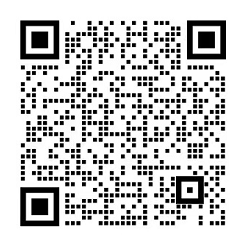我国综合医院CLP服务中由轻到重的主要精神卫生问题,以下不正确的是( )
A.适应不良
B.人际关系危机
C.神经症症状
D.抑郁、焦虑
E.精神分裂症
试卷相关题目
- 1关于以患者为中心的会诊要求,以下不正确的是( )
A.对患者作出明确分析诊断
B.回答请求会诊者提出的问题
C.治疗计划的实施
D.确定会诊者在治疗计划中担任的角色
E.邀诊医师成为处理责任承担者
开始考试点击查看答案 - 2关于国内外CLP服务模式现况,以下不正确的是( )
A.非精神科医师为主的服务模式
B.综合医院精神科为主的服务模式
C.专科精神病院为主的服务模式
D.逐步形成单一的工作模式
E.会诊-联络中心的服务模式
开始考试点击查看答案 - 3建立和发展CLP服务的意义,以下不正确的是( )
A.强调心身整合的疾病概念
B.适应人们对精神卫生服务的需求
C.缩短住院天数,提高病床周转率
D.克服“医疗问题非医疗化”
E.及时转诊和处理有关患者
开始考试点击查看答案 - 4有关我国综合医院精神卫生问题的调查结果,以下不正确的是( )
A.综合医院1/3的患者伴有精神障碍
B.门诊未确诊的患者中20%〜30%有精神卫生问题
C.40%〜60%的患者需进行精神处理
D.约25%的慢性躯体疾病患者伴有精神障碍
E.神经科门诊神经症患者的比例约为12%
开始考试点击查看答案 - 5有关会诊-联络精神病学的定义,不正确的是( )
A.以精神病学为基础
B.临床各科医师互相提供会诊服务
C.与各科医师共同提供多维诊断和治疗
D.研究躯体疾病与心理反应的相互关系
E.精神科医师提出精神病学诊断、治疗
开始考试点击查看答案 - 6关于我国综合医院CLP服务的治疗原则,以下不正确的是( )
A.精神药物的剂量宜小,缓慢增量
B.转诊有强烈自杀企图的患者
C.提供有限的短期整合心理治疗
D.首先处理精神症状
E.密切观察药物反应及副作用
开始考试点击查看答案 - 7The most common psychiatric disorder associated with stroke is( )
A.Mania
B.Psychosis
C.Bipolar disorder
D.Depression
E.Generalized anxiety disorder
开始考试点击查看答案 - 8A 56-year-old woman slips on ice and hits her head on the pavement, but she does not give much weight to this event. During the following three weeks, she develops a persistent headache, she is increasingly distractible and forgetful, and at night she bec( )
A.Chronic subdural hematoma
B.Frontal lobe tumor
C.Korsakoffs disease
D.Epidural hematoma
E.Multi-infarct dementia
开始考试点击查看答案 - 9A 46-year-old woman has been visiting her family doctors office several times a month. Abdominal pain, dysuria, nausea, severe menstrual cramps, dizziness, fainting spell, and painful intercourse have been among her complaints during the past years. There( )
A.Somatoform disorder
B.Delusional disorder
C.Body dysmorphic disorder
D.Conversion disorder
E.Hypochondriasis
开始考试点击查看答案 - 10A 63-year-old man with a history of diabetes mellitus, chronic COPD, hepatitis, peripheral neuropathy, and a pacemaker for control of cardiac arrhythmia complains of newonset episodic anxiety occurring over the past 3 weeks. He has no history of anxiety s( )
A.Panic disorder
B.Episodic hypoglycemia
C.Hypoxia due to COPD
D.Hypoxia due to arrhythmia
E.Anxiety due to hyperthyroidism
开始考试点击查看答案
 湘公网安备:43011102000856号
湘公网安备:43011102000856号 
